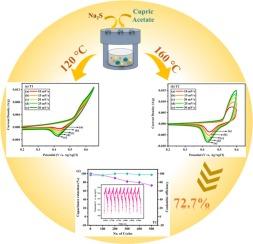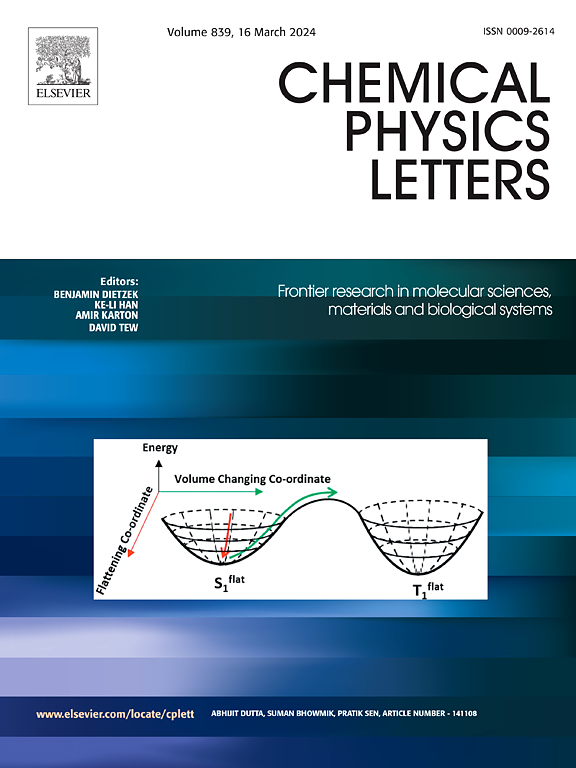Temperature-dependent electrochemical performance of CuS as electrode material for supercapacitor application
IF 2.8
3区 化学
Q3 CHEMISTRY, PHYSICAL
引用次数: 0
Abstract
In this work, we synthesize copper sulfide as electrode materials using hydrothermal technique at different temperatures. The electrochemical performance of copper sulfide electrode in 3-electrode systems using 2 M KOH electrolyte is thoroughly studied using electrochemical techniques such as CV, GCD and EIS. The sample synthesized at 160 °C demonstrates that it has a specific capacitance of 232.5F/g at a charge–discharge current density of 1 A/g, maintains cyclic stability of 72.57 % during 500 GCD cycles at 5 A/g, highlighting its potential for supercapacitors applications. The results demonstrate that temperature significantly alters the electrochemical properties of the CuS.

用作超级电容器电极材料的 CuS 的电化学性能与温度有关
在这项研究中,我们采用水热技术在不同温度下合成了硫化铜电极材料。利用 CV、GCD 和 EIS 等电化学技术,深入研究了硫化铜电极在使用 2 M KOH 电解液的三电极系统中的电化学性能。在 160 °C 下合成的样品在充放电电流密度为 1 A/g 时的比电容为 232.5F/g,在 5 A/g 的条件下进行 500 次 GCD 循环时保持了 72.57% 的循环稳定性,凸显了其在超级电容器应用方面的潜力。结果表明,温度会明显改变 CuS 的电化学特性。
本文章由计算机程序翻译,如有差异,请以英文原文为准。
求助全文
约1分钟内获得全文
求助全文
来源期刊

Chemical Physics Letters
化学-物理:原子、分子和化学物理
CiteScore
5.70
自引率
3.60%
发文量
798
审稿时长
33 days
期刊介绍:
Chemical Physics Letters has an open access mirror journal, Chemical Physics Letters: X, sharing the same aims and scope, editorial team, submission system and rigorous peer review.
Chemical Physics Letters publishes brief reports on molecules, interfaces, condensed phases, nanomaterials and nanostructures, polymers, biomolecular systems, and energy conversion and storage.
Criteria for publication are quality, urgency and impact. Further, experimental results reported in the journal have direct relevance for theory, and theoretical developments or non-routine computations relate directly to experiment. Manuscripts must satisfy these criteria and should not be minor extensions of previous work.
 求助内容:
求助内容: 应助结果提醒方式:
应助结果提醒方式:


